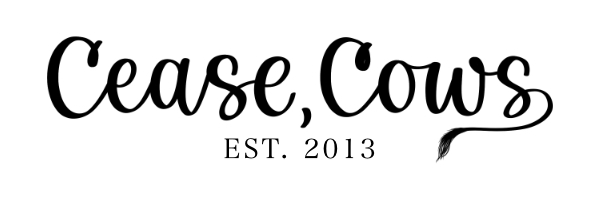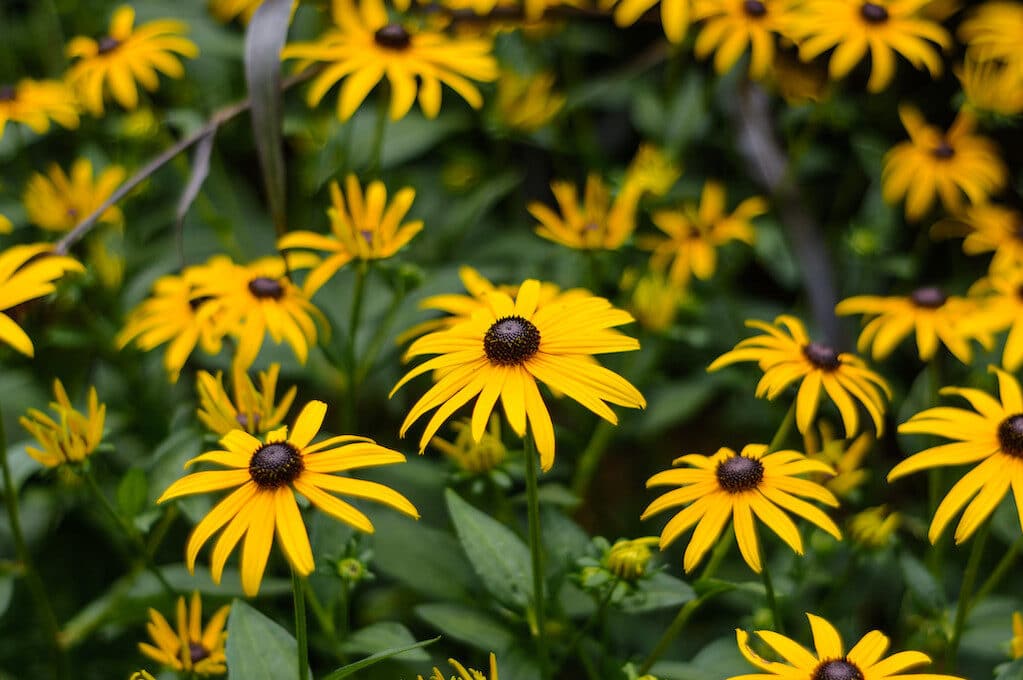Held in my dirty hands, the uprooted black-eyed Susan stalks stick straight up from their root balls, the flowers catching in my hair. If only they hadn’t chosen to grow up in the middle of my driveway, I could have left them alone. Instead, I had to dig them up gently to save them, and I hoped that they would survive the transplant, these yellow flowers, these “volunteers,” as my city friend used to call any plant that came up of its own free will.
Back then, she and I would walk all the way up to Central Park on our common days off, in our grungiest clothes, smoking and singing along the way, following the horses and collecting their shit in serving spoons since we had no trowels. Then we would splurge on the subway downtown, would ride while laughing at the people who stared at our swollen plastic bags and us, held their noses, and sometimes swore at us. “You filthy drug addicts,” they said. She flipped them off, no matter how big or tough they looked. We had heard that horse shit was good for turning soot into soil, and we were trying to grow a garden in the soot in back of our tenement on the Lower East Side.
Today I carry the clump of sod delicately, so as not to damage its roots. My new friend – my country friend, who grew up here in Vermont and is still alive – laughs gently and asks, “Are you transplanting that, Anna?”
“Of course,” I say.
“But, sweetheart,” she says, “that’s a weed.” She chuckles gently, in her friendly way, and keeps on laughing at my cute city lack of understanding of all things green and alive and beautiful.
But me? I think of jamming the black root ball into her open mouth, or maybe burying her alive here in the rich brown soil of my garden, because back before, when we tried so hard to make anything green grow with no money and no seeds and not even a spade, any “volunteer” was beautiful. And if we had chanced to discover one with living, actual flowers, we would have gotten down on our drunken knees and kissed its sweet petals.
After her shocking death, I wasn’t allowed to bury my dear dead friend in the dirt of our New York City slum garden. I buried her ashes, full of bone chips, there instead. It colored my hands, white with ash, black with soot. Ashes are good for soil too, I’d heard. Maybe hers would help the garden, I thought. I kept on trying. I even went up all alone to follow the horses. But without her to tend our garden, nothing would grow. The soot encroached and the plants withered.
So I left the city, and her, and I came up here. I moved on. Now I live in this beautiful green place. I have a real house and a real garden. I have my new friend who is as tranquil as the old one was wild. And, when she sees me looking at her as if I would like to plant her head down in the garden, she stops laughing. Then she tells me gently that black-eyed Susan, like most weeds, cannot survive transplantation. She says that all my pretties will be dead by tomorrow.
–
Ms. Bernstein was an actor for 15 years before turning to writing. She has written a novel, The Children of Matthew Siegel, and is a member of GRUB Street Writers Workshop, where she has worked particularly with Jenna Blum. In addition, she attended GRUB Street’s “Muse and the Marketplace” conference several times. She also attended the Pine Manor Summer Solstice Writer’s Workshop. Prufrock Press published her children’s story and math book, Time Travel Math, in 2010. Her flash fiction piece, “Upon Leaving The Hospital,” recently appeared in Black Heart Magazine. She lives in Framingham, Massachusetts with her husband, a theater professor, her one remaining at-home daughter, and her third Sheltie.
Lead image: “Black-Eyed Susans” (via Flickr user Peter Miller)


Beautiful piece Amy. The words took me back to New York.
Nicely done Amy. She would be happy. I never knew of your past talents. Good to share.